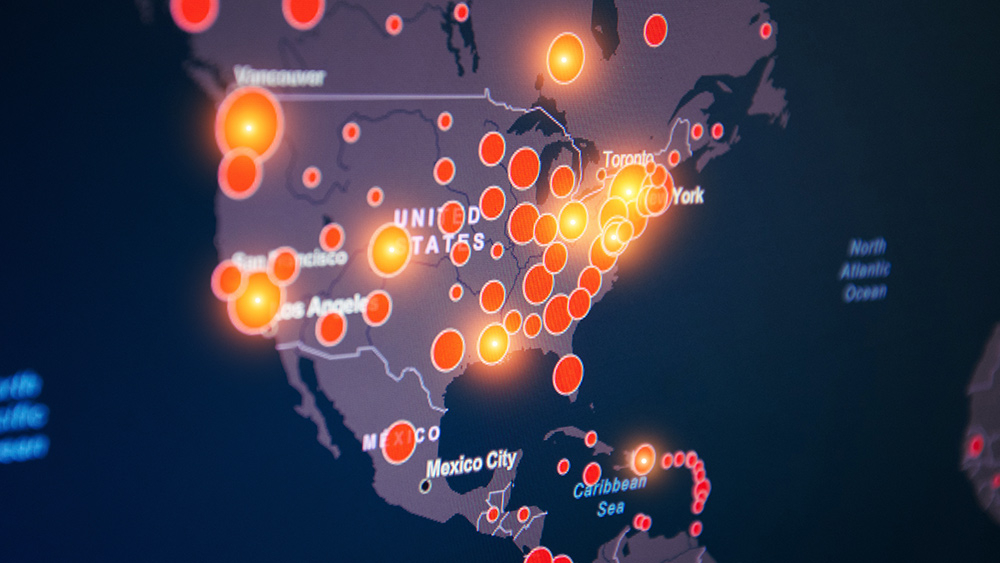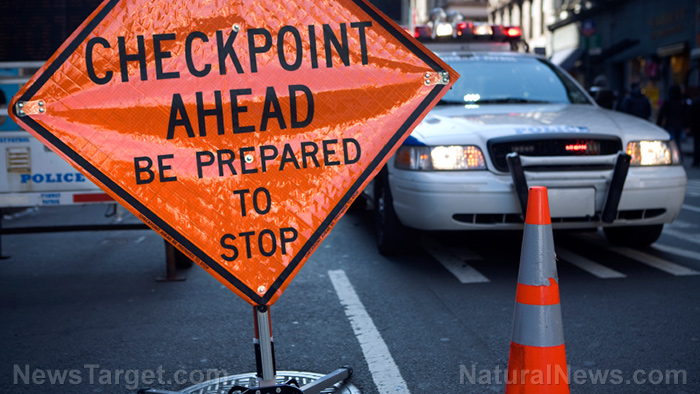Major banks forced to close amid coronavirus outbreak
03/24/2020 / By Michael Alexander

Banks throughout the United States are closing their branches as they shift toward drive-through and ATM operations in response to the rising number of coronavirus cases in the country.
One of these banking establishments is JPMorgan Chase & Co, which closed several of its branches earlier this week.
“We are planning to temporarily close about 20 percent of our branches,” the bank’s upper management said in a message directed to employees earlier this Wednesday.
The closures, according to the bank, will help protect their employees while at the same time provide essential services to their customers.
Thasunda Brown Duckett, CEO of Chase Consumer Banking, said JPMorgan Chase & Co. will continue to pay branch employees for their regularly scheduled hours – even if their hours are reduced or the branch is closed and they are asked to report to another branch or stay home.
“Every day I’m asking what more I can do – as a mother, as a daughter and as a CEO,” Brown Duckett, said.
“You are my tribe and your health and safety are important to me. I am balancing that with the fact that we are essential to the communities we serve, and we need to be there to help,” she added.
The bank, however, did not disclose which locations would be shut down, although it said that the remaining network of open branches would be more than enough to serve their clients.
According to JPMorgan Chase, non-teller personnel such as financial advisers and mortgage bankers will work from home thus lowering the number of people in any of their sites. In addition, most of the remaining open branches have drive-through or tellers behind glass to “further safeguard employees and customers,” the bank said.
Following JPMorgan Chase’s decision to cut operations, Wells Fargo has also decided to close some of its branches in light of recent upticks in coronavirus cases in the U.S. (Related: Financial institutions around the world buckle up for coronavirus outbreak.)
“We are enhancing social-distancing measures, utilizing drive-ups in some cases instead of lobbies, staggering staff and shifts, relocating employees to busier branches and temporarily closing some branches,” Wells Fargo spokeswoman Liana Enriquez said, adding that the $222.96 billion-asset bank will encourage customers to use mobile and online banking tools for the moment.
Bank of America, through a spokesman, said the company’s branches will remain open, albeit with changes in its operating hours.
According to a statement released Friday, Bank of America would reduce hours at its branches to 10 a.m. to 4 p.m. local time, Monday through Friday, in order to give it time to conduct “enhanced, daily cleanings.”
Capital One Financial meanwhile, announced earlier this week that it is closing all its café locations, as well as 120 of its branches in selected locations, for an indefinite period of time. According to a spokeswoman for the $390.4 billion-asset company, these are “the right steps” for Capital One to take in order to maintain essential banking access to its customers.
According to a prepared statement, a total of 341 Capital One branches will remain open, although its employees will primarily serve customers behind protective glass or via their drive-through windows.
Banks, regulators to people: Don’t hoard cash
In a bid perhaps to protect their financial safety nets amid an influx of coronavirus cases in the nation, people have been reported to have withdrawn large amounts of money from bank ATMs.
This uptick in large withdrawals – ranging from tens of thousands of dollars to as much as $250,000 all at once – has since depleted the cash reserves of some U.S. banks and credit unions, prompting responses from banks and regulators who say withdrawing thousands of dollars at once is unnecessary.
“This is not a natural disaster where the electricity’s out, where payment systems are out, where you can’t use other methods of payment or access your money,” Greg McBride, CFA, Bankrate chief financial analyst, said adding that there’s no need for people to go overboard and pull excessive cash out of their accounts.
“Banks are well capitalized, the Federal Reserve is pumping liquidity into financial markets, and consumer deposits are protected by federal deposit insurance. The safest place for your money is in the bank – not out of it,” McBride stated.
Kristin McKenna, managing director and a wealth advisor at Darrow Wealth Management, agrees.
This is not a systemic failure of the financial system. This is a completely different animal. But it’s not a failure of the banking system,” McKenna said, adding that outside of a bank, one’s money is at risk of being stolen.
Worldwide, the coronavirus, which originated in Wuhan, China before spreading to other countries, has infected 381,000 and killed 16,553 people, as of press time.
For more updates on the coronavirus pandemic, head over to Pandemic.news.
Sources include:
Tagged Under: banking, Collapse, coronavirus, covid-19, economics, finance, financial regulation, Financial Risk, global economy, market crash, national debt, outbreak, pandemic, recession, risk, stock market, World Bank
RECENT NEWS & ARTICLES
Pandemic.News is a fact-based public education website published by Pandemic News Features, LLC.
All content copyright © 2018 by Pandemic News Features, LLC.
Contact Us with Tips or Corrections
All trademarks, registered trademarks and servicemarks mentioned on this site are the property of their respective owners.





















